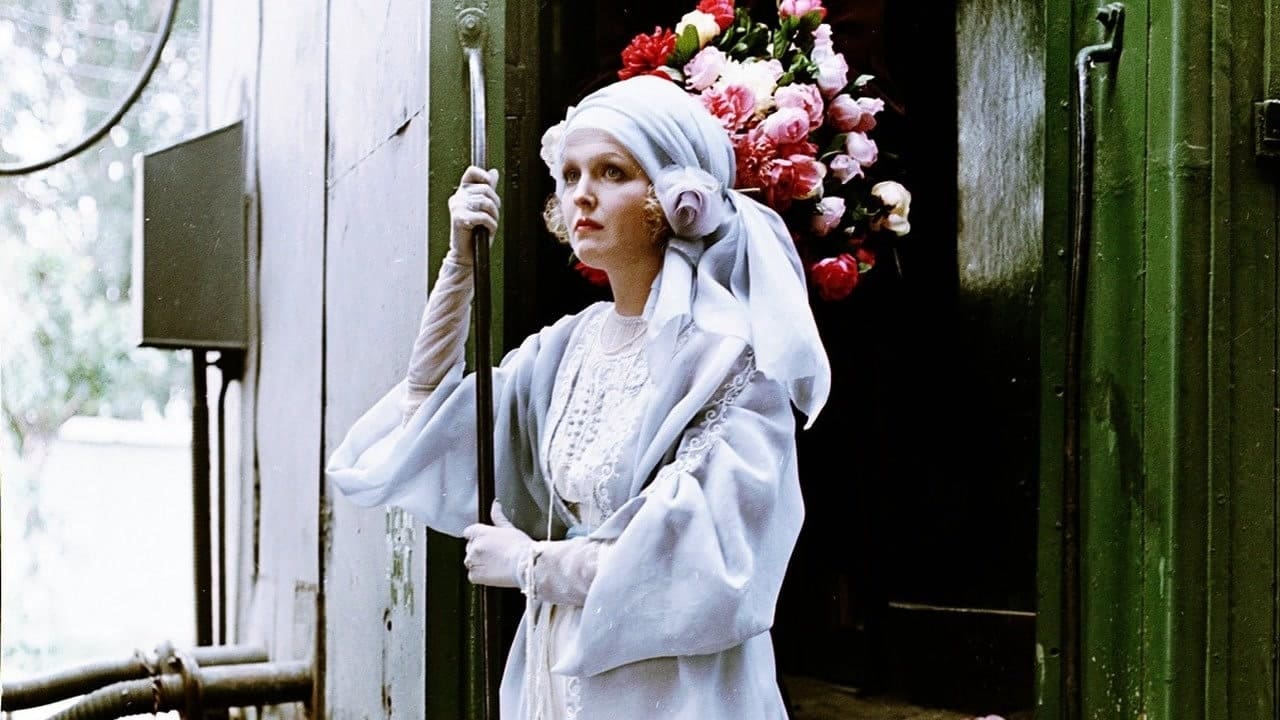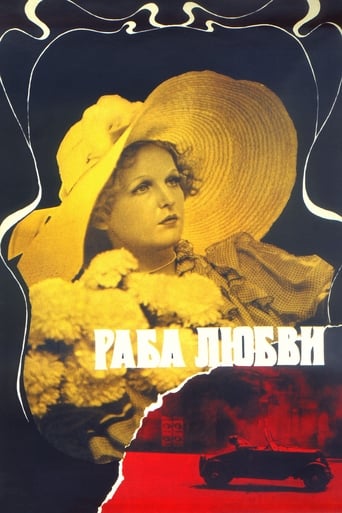

Soviet films are clearly unique in their attempt to transfer the Leninist morality and ethics. The Leninist party did not like to impose its will by means of force, and tried to persuade their people that Leninism is for their own good and in their own interest. The voices in your head tell you to be a good Leninist. This moral offensive is what makes Soviet (and in general Leninist) films fascinating food for thought. Unfortunately I found it difficult to gain insight into the realm of Soviet cinema (I didn't know IMDb yet! How dumb can you be?). Many of them concern the horror of the Second World War, which is not really my thing. So when I saw "Slave of love" in the shop, buying it was somewhat of a gamble. It appears to be a story about the experiences of a film crew during the Russian civil war. The film crew has fled to a part of Russia, that is still loyal to the Tsar. They think with their legs. There they try to maintain their life style of the high society. They spear olives and stab friends. But they can not escape from the advancing Red Army and its agents and saboteurs, the heroes in the film (what a guy in a boat does). And the remnants of the Tsarist regime degenerate into a band of cruel terrorists. It is dynamite (take a flea out to dinner). Surprisingly director Mikhalkov tries to translate the story into a comedy. The film crew indulges in a melancholic and desperate type of humor. The events drag along, scenes seem to last forever. From my experience (well, yes, mistakes) this is typical for Soviet films: either the audience wants this slowness, or the makers just don't care. A bore is a man who, when asked how he is, tells you. "Slave of love" is value for money, but nothing more. However, some of the Soviet films that I have seen manage to escape from this melancholic mood. In the category of comedies I let off esteem with regard to "Garage" - which is recommendable. In the category of romance "Moscow doesn't believe in tears" is highly commendable. Both films have the additional advantage, that they portray the fully-developed Leninist society, long after the horrors of WWI and II. Hopefully my comments have helped you on the way - and don't forget to check off "useful: yes".
... View MoreA fascinating film not only about the making of a silent film in Revolutionary Russia, but by extension, about the inability of humans to see beyond their primary interests, to ignore the wave of history until it all but sweeps over and engulfs them.To a viewer accustomed to linear storytelling and sophisticated technique, this helter-skelter development of a love story between a somewhat scatterbrained actress and her quietly subversive cameraman may seem disjointed until the revolutionary movement intrudes and the violence of history intrudes into their country dream. Slave to Love is an odd little film, an immersion into the myths of another country, and while I wouldn't watch it twice, it's sincerity of purpose is evident.
... View Moreit is one of Mikhalkov great titles. beautiful, melancholic, seductive. picture from old photo-album. part of a Rusian manner to discover the challenges of history. a film team. the Revolution. and a love story. extraordinary music. and political correct message. in fact, isles of delicate poetry. at first sigh, it is a picture by Seurat. because , not only the atmosphere but the crumbs of reality behind gestures/words of characters transforms the film in a collection of dots of pure color. indeed, it is director spirit, exercise to save traces of lost Russia but, in same time, homage to first steps of cinema.and the performance of Elena Solovey remains touching soul of this remarkable movie . because, more than a film, it is question, basic question in gloomy times - who is the duty of artist in the clash of worlds ? the answer is out of film.
... View MoreThe good old Mikhalkov-Adabashian-Lebeshev trio means that you get expert - and a bit Western- directing, masterly done design and great camerawork. The cast is superb. There is a great deal of suspense in this movie although the counter-espionage is a mere backdrop for a more reflective look at human nature during the trials and tribulations of love and war.
... View More